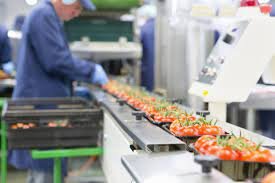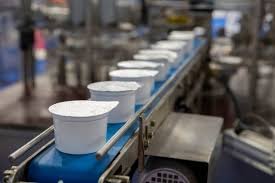Fruits and Vegetable Processing Operator

In the realm of food production and processing, fruits and vegetables hold a significant place due to their immense nutritional value and contribution to a healthy diet. Behind the scenes of this industry are skilled professionals known as Fruits and Vegetable Processing Operators, whose expertise is vital in ensuring the quality, safety, and efficiency of the processed products that reach our tables. In this article, we delve into the role of these operators, exploring their responsibilities, the techniques they employ, and the importance of their work in the broader context of food processing.
Understanding the Role: Fruits and Vegetable Processing Operators are integral to the food processing industry, specializing in handling, preparing, and transforming raw fruits and vegetables into various products such as juices, canned goods, frozen items, and dried snacks. Their work involves a blend of manual labor, machinery operation, and adherence to strict quality and safety standards.
Responsibilities of Fruits and Vegetable Processing Operators:
- Preparation and Sorting: Operators are responsible for sorting and inspecting incoming fruits and vegetables to ensure they meet quality standards. This involves removing damaged or spoiled items and preparing the produce for processing.
- Processing Operations: Once the raw materials are sorted, operators employ various processing techniques such as washing, peeling, slicing, and blanching to prepare the fruits and vegetables for further stages of production.
- Operating Machinery: Fruits and Vegetable Processing Operators work with a range of specialized machinery and equipment such as slicers, blanchers, juicers, and canning machines. They must be proficient in operating these machines safely and efficiently to maintain productivity and product quality.
- Quality Control: Throughout the processing stages, operators conduct regular quality checks to ensure that the products meet specific standards for taste, texture, color, and consistency. They also monitor factors such as temperature, acidity, and moisture levels to prevent spoilage and maintain freshness.
- Packaging and Labeling: Once processed, fruits and vegetables are packaged into containers or sealed bags, and operators are responsible for ensuring that the packaging is secure and properly labeled with relevant information such as ingredients, nutritional content, and expiration dates.
- Sanitation and Hygiene: Maintaining a clean and hygienic work environment is paramount in food processing. Fruits and Vegetable Processing Operators follow strict sanitation protocols to prevent contamination and ensure food safety. This includes regular cleaning of equipment, work surfaces, and production areas.
- Compliance with Regulations: Operators must stay updated with relevant food safety regulations and industry standards to ensure compliance. They may be required to keep detailed records of processing activities, conduct regular inspections, and participate in audits to verify adherence to quality and safety guidelines.
Techniques Employed by Fruits and Vegetable Processing Operators:
- Canning: Canning is a popular preservation technique that involves sealing fruits or vegetables in airtight containers and subjecting them to heat to destroy harmful microorganisms. Fruits and Vegetable Processing Operators oversee the entire canning process, from filling and sealing cans to sterilizing them to prolong shelf life.
- Freezing: Freezing is another effective method of preserving fruits and vegetables while retaining their nutritional value and flavor. Operators use specialized freezing equipment to rapidly freeze produce, ensuring that it remains fresh until consumption.
- Drying: Drying or dehydration involves removing moisture from fruits and vegetables to inhibit the growth of bacteria and mold. Fruits and Vegetable Processing Operators utilize dehydration techniques such as air drying, sun drying, or using commercial dehydrators to produce dried fruits, vegetables, and snacks.
- Juicing: Juicing is a popular way to extract the liquid content and nutrients from fruits and vegetables. Operators operate juicing machines to extract juice from various produce, which can be consumed fresh or used as ingredients in other food products.
- Blanching: Blanching is a pre-treatment process that involves briefly immersing fruits or vegetables in boiling water or steam. This helps in preserving color, flavor, and nutritional value while also softening the produce for further processing or freezing.
Importance of Fruits and Vegetable Processing Operators:
- Preservation of Nutritional Value: By employing various processing techniques, Fruits and Vegetable Processing Operators help preserve the nutritional content of fruits and vegetables, ensuring that consumers have access to healthy and wholesome food options year-round.
- Reduction of Food Waste: Processing operations allow for the utilization of surplus or imperfect produce that may not meet retail standards for fresh consumption. This helps reduce food waste by transforming these items into value-added products such as canned goods, frozen items, and dried snacks.
- Enhancement of Convenience: Processed fruits and vegetables offer convenience to consumers by providing readily available, pre-prepared options that require minimal preparation time. This appeals to busy individuals and families seeking convenient yet nutritious meal solutions.
- Expansion of Market Access: Processed fruits and vegetables have a longer shelf life and can be transported over long distances without spoilage, thereby expanding market access for producers and increasing availability for consumers, especially in regions where fresh produce is scarce or seasonal.
- Support for Agricultural Sector: The processing industry creates demand for a wide range of fruits and vegetables, providing income opportunities for farmers and supporting agricultural livelihoods. It also promotes crop diversification and value addition, contributing to the sustainability of the agricultural sector.

Conclusion: Fruits and Vegetable Processing Operators play a crucial role in the food processing industry, ensuring the efficient transformation of raw produce into safe, nutritious, and convenient food products. Through their expertise in handling, processing, and quality control, they contribute to the preservation of nutritional value, reduction of food waste, and expansion of market access for fruits and vegetables. Their dedication to upholding quality and safety standards is essential in meeting consumer demand for healthy and convenient food options. As consumers continue to prioritize health and sustainability, the role of Fruits and Vegetable Processing Operators remains indispensable in shaping the future of food processing.



